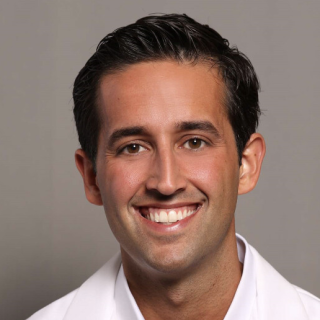
The new academic year is in full swing and newly minted interns are deep in clinical work, navigating the steep learning curves and traversing the transition from reporter to interpreter. As an upper-level emergency medicine resident, I wanted to offer you my thoughts on keys to maximize your internship, irrespective of whether you are an emergency medicine intern or not.
Intern Year Is Miracle Grow
Internship (and residency in general) is dependent on being self-aware and cultivating a growth mindset, a continual process of learning with a daily declaration to choose growth over complacency. My pre-shift fear of being unprepared translated into constructive paranoia, being intentional with my studying, and a mindset of attacking the day with forward tempo. As an intern, you will understand the medicine with time because you are smart but the measure of your success in a large part will be determined by how emotionally intelligent you are, and your possession of humility. Avoid the temptation of getting offended if attending physicians ask you basic questions or give you non-glowing feedback that you may perceive as criticism; rather view it as that person not having enough time or direct experience with you to form a point of view. Or, more often, that there are areas in which you need growth. Be gracious and thank them for them investing in your education. It is a bad place to be when people have determined that you are “un-teachable” and have stopped offering you advice. It means simply they have given up. Do you have a growth mindset or are you satisfied by simply completing the requirements?
Competence Is Fragile
Ronald Epstein, MD, commented in his "Attending: Medicine, Mindfulness, and Humanity" that “Mindless inattention could result in disaster and (that) competence is fragile and takes mindful vigilance to maintain.” A winning operational mindset is to remain vigilantly prepared. Be present, acknowledge subconscious bias, and try to view each patient with fresh eyes. Refuse the temptation of premature closure, availability bias, and blind obedience. How are you promoting competence and remaining competent?
Win Your Job, Daily
As a former college baseball catcher, I operated daily with a sense of urgency and remained mindful that if I did not perform, I would be replaced by a teammate. Athletes in general are motivated by the pursuit of winning the job. The collegiate athletic mindset created a consistent internal framework with the goal of “winning my job.” Every day I walked into the hospital and exceeded expectations of others. I focused on the little things that in reality shed light on character. I showed up early, stayed late, asked thoughtful questions, and volunteered for small tasks. These are ingrained in my toolbox and are behavior traits. What are you doing each day of internship to win the job?
Owner > Renter
Reed Hastings, CEO of Netflix, famously published the company’s slide-deck on culture. He speaks about recruiting, retaining, and promoting employees who showcase high performance. The most poignant component of this was “The Rare Responsible Person.” Per Hastings, “The person was self-motivated, self-aware, self-disciplined, self-improved, acted like a leader, acted without prompting, and picked up trash lying on the floor.” The distinction between an owner and renter is the level at which they invest in the process. Internship and residency overall are marathons comprised of short sprints. Invest in the process of residency as an owner would in a high-value property. You are never too busy to pick up trash lying on the floor. Are you an owner or renter?
High Reliability Resident
Organizations and especially hospital systems across the country are racing to be known as high reliability organizations. It illustrates repeatable competence and a trust and confidence that service and actions taken are appropriate, verifiable, and conducted with utmost integrity. Becoming a high reliability residents starts with an obsession on performance improvement during internship. It also means operating with utmost integrity and honesty in your words and documentation. For example, when staffing a patient with an upper-level resident or attending and they ask for clarification on a physical exam component you did not perform, never lie. Your reputation is earned daily and can be irreversibly destroyed in seconds. We are in daily pursuit of becoming worthy of trust and confidence with our patients and their families, co-residents, supervisors, and support staff. How do you become a high reliability resident?
Three Fuels
Another facet of your success will be the trust and goodwill you generate from support staff. Learn the names of nurses, technicians, and clerks, and use them often. Take the time to recognize a few nurses, social workers, or security guards to their supervisors each month who did something special to positively impact patient care. Lee Cockerell, former Vice-President of the Walt Disney World Resort famously states in his "Creating Magic" about the three fuels that drive human performance: appreciation, recognition, and encouragement. Give it out daily. Are you giving out the three fuels?
Miracle Grow serves as the cultivator of soil, permitting the development of a suitable foundation from which to grow; internship is your Miracle Grow.
Nicholas Cozzi, MD MBA, is a PGY-2 EM Resident in Grand Rapids, EMRA Administrative and Operations Vice-Chair, and EMRA Leadership Academy Class of 2020.






